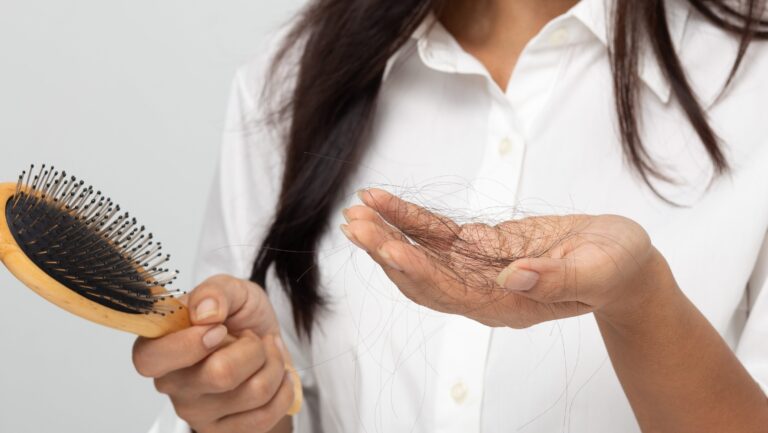Alopecia is a common term used to describe hair loss, which disproportionately affects Black women. Almost half of black women will experience some form of hair loss in their lifetime. It can occur in many different ways, including what is best known as alopecia areata. Famous women living with alopecia include Jada Pinkett Smith and “Summer House: Martha’s Vineyard” star Jordan Emanuel.
Treatments vary depending on the cause and can range from topical medications to ointments and even treatments involving stem cells. These treatments can be expensive, and most of them are paid for out of pocket. A black dermatologist at Johns Hopkins University may have stumbled upon the solution: a diabetes drug.
Dr. Crystal Agu, a dermatologist and director of the Ethnic Skin Program at Johns Hopkins University, has made significant progress in research into the hair loss reversal effects of the low-dose oral diabetes drug metformin.
The drug is a non-insulin drug used to manage blood sugar levels and also contains ingredients that can target or slow the progression of scarring that can occur in the organs of people with diabetes. Previous research by Agu has shown that insulin resistance is also a factor in scalp scarring.
“We had to give women a chance to grow their hair back,” she told the Baltimore Banner in a recent interview.
He administered a low-dose cream version of the drug directly to the scalp and studied 12 black women who had central centrifugal cicatricial alopecia (CCCA), one of the most common forms. A series of tests were conducted. She found that nine patients had improved scalp scarring and six patients had “clinical evidence” of hair regrowth after the first six months.
“Low-dose oral metformin may reverse the fibrotic transcriptional signature of CCCA and promote hair regeneration, suggesting its potential as a targeted therapy for this cicatricial alopecia,” she said. This is written in the research results published in JAMA Dermatology.
Recommended stories
The next step in Agu’s research is a formal clinical trial in which the treatment will be tested for approval by the U.S. Food and Drug Administration. If this drug is approved by the FDA, it could change the lives of many people, especially Black women.
According to Agu, up to 15 percent of African American women suffer from CCCA alone. Speaking to the outlet about the impact hair loss has on a person, she said: “Devastating is an understatement.”
She added that beyond beauty and self-esteem, about 10% of women delay or refuse serious treatments that can lead to hair loss, such as chemotherapy.
It is not fully understood why black women are more prone to hair loss and alopecia. In an article published by Hopkins University, Agu said: Hereditary hair loss disorders include alopecia areata and female pattern hair loss. ”
She added that other forms of hair loss can also be caused by stress, improper diet, and styling.
“Black women are especially susceptible to a type of hair loss called traction alopecia, which is caused by heat, chemicals, and tight styles that pull on the hair roots, such as braids, dreadlocks, extensions, and braids,” she says. wrote. .
Aguh’s goal is not just to develop new treatments for hair loss. She intends to find a cure.
“I’m a scientist, but I’m a human being first,” she told the Baltimore Banner. “I want people to get better. If you can leave a hair clinic because no one is losing hair, that’s great.”

